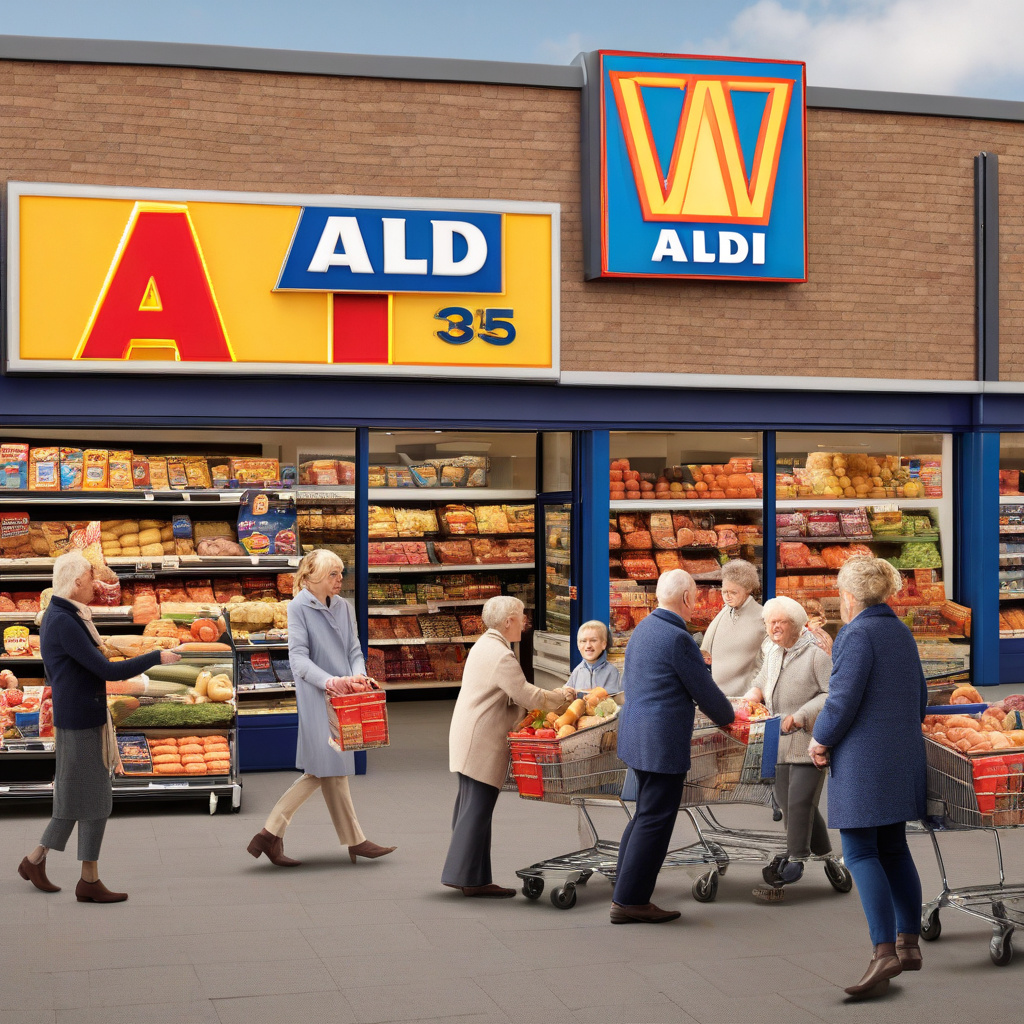Aldi at 35: How the German Discounter Has Disrupted the UK Grocery Sector
This year, Aldi proudly celebrates its 35th anniversary in the UK, a milestone that highlights the supermarket’s remarkable journey since it opened its first store in Stechford, Birmingham, in 1990. Initially offering a mere 600 basic grocery lines, Aldi has transformed the UK grocery landscape, expanding to over 1,050 stores nationwide and recently surpassing Morrisons to become the fourth-largest supermarket chain in the country. This extraordinary growth story is not just about numbers; it reflects a shift in consumer behavior and a challenge to more established players in the grocery sector.
Aldi’s initial foray into the UK market was modest, with a singular focus on cost efficiency and value. By concentrating on a limited range of products, the retailer managed to keep its overheads low and offer unbeatable prices. This strategy positioned Aldi as a formidable competitor, especially during times of economic uncertainty when consumers became increasingly price-conscious. The 2008 financial crisis served as a catalyst for many shoppers to reconsider their grocery choices, and Aldi was ready to meet this demand.
The brand’s low-cost model has been complemented by a no-frills shopping experience. Unlike traditional supermarkets that invest heavily in marketing and store aesthetics, Aldi opts for minimalism. Products are often displayed in their shipping boxes, reducing labor costs and allowing for faster restocking. This straightforward approach resonates with consumers who appreciate transparency and efficiency. In a world where convenience is king, Aldi has effectively positioned itself as a savvy choice for budget-conscious shoppers.
In addition to its pricing strategy, Aldi has made significant strides in product quality, which has further disrupted the UK grocery sector. Initially branded as a discount retailer primarily focused on low prices, the supermarket has successfully evolved its product offerings. Aldi has introduced a range of premium private-label products that have won awards, showcasing quality that rivals big-name brands. This shift has allowed Aldi to attract a broader demographic, appealing not only to budget shoppers but also to those who prioritize quality.
Moreover, Aldi’s commitment to sustainability and ethical sourcing is noteworthy. The retailer has made considerable investments in reducing plastic waste and sourcing locally when possible. Its decision to eliminate plastic bags and introduce reusable alternatives speaks to a growing trend among consumers who are increasingly environmentally conscious. By aligning its business practices with consumer values, Aldi has solidified its reputation as a responsible retailer.
The retailer’s rapid expansion has also played a crucial role in its success. With more than 1,050 stores spread across the UK, Aldi has made its presence felt in both urban and rural areas. Its strategy of opening new stores in locations previously dominated by larger competitors has allowed it to capture market share effectively. While traditional supermarkets often rely on brand loyalty, Aldi appeals to a more transient customer base that prioritizes value over brand allegiance. This has created a unique competitive landscape where consumers frequently switch between retailers based on price and convenience.
Aldi’s success has not only disrupted the UK grocery market but has also prompted other retailers to rethink their strategies. Established chains like Tesco, Sainsbury’s, and Morrisons have had to respond to Aldi’s challenge by emphasizing their own value propositions. Many have introduced budget lines and promotional campaigns aimed at capturing price-sensitive shoppers. This ongoing competition has ultimately benefited consumers, leading to lower prices and improved product offerings across the board.
Looking ahead, the future of Aldi in the UK seems bright. The retailer has announced plans to continue its expansion, with targets to open hundreds of new stores in the coming years. Additionally, Aldi is investing in technology to enhance the shopping experience, including improvements in online ordering and delivery services. These developments will likely further entrench its position as a leader in the grocery sector.
In conclusion, Aldi’s 35-year journey in the UK is a testament to its innovative business model and adaptability. By focusing on cost efficiency, product quality, and sustainability, Aldi has not only grown its market share but has also reshaped the grocery sector in ways that benefit consumers. As the retailer continues to evolve, it remains a key player in the ongoing transformation of the UK grocery landscape, pushing competitors to innovate and ultimately enhancing the overall shopping experience.
#Aldi35 #GrocerySector #RetailInnovation #Sustainability #UKGrocery
